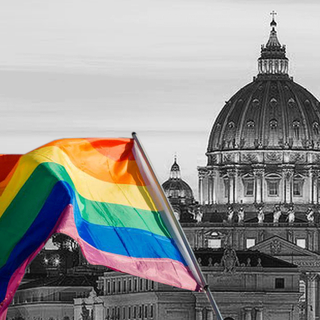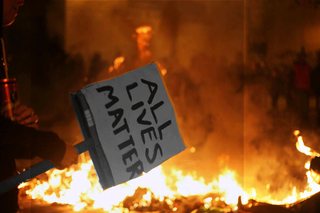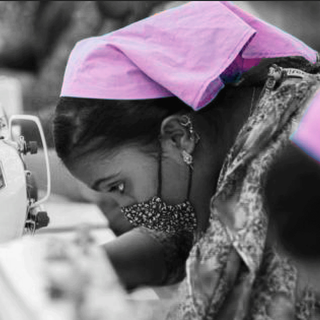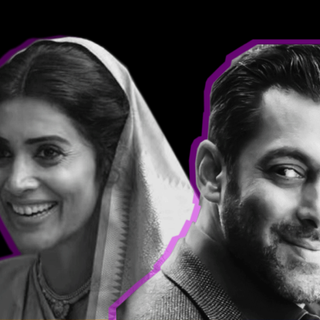
The Absurd Straight Pride Shows Why Reverse Oppression Isn’t a Thing
All lives matter, reverse sexism, thin phobia are all examples of arguments majority groups use to preserve power.

A far-right white-nationalist hate group has been trying to organize a ‘straight pride’ parade, as a counter to the 49th annual LGBTQIA+ Pride celebration ongoing in the West this June. Critics have rightly denounced the concept of a ‘straight pride’, which purports to overshadow Pride and queer communities’ history of being oppressed. The ‘straight pride’ parade, glorifying the rhetoric of reverse oppression, is supposed to be based on the notion of cisphobia, and that heterosexuals need a parade to celebrate their sexuality — which is utter bollocks.
‘Straight pride’ happens every day: if a heterosexual couple holds hands and kisses in public, it’s ‘straight pride.’ If they go to the hospital and the medical professional knows how to treat them, it’s ‘straight pride.’ If they can adopt children or get an apartment together, it’s ‘straight pride.’ Basically, wherever heterosexual people can exist without stigmatization and threat of abuse or violence, is ‘straight pride.’ So, essentially, it’s happening all the time, everywhere.
A watershed moment in the LGBTQIA+ rights movement happened in 1969, when members of the queer community rioted in New York City against a police raid on a gay bar, and now NYC institution, the Stonewall Inn. The Stonewall riots are largely considered as having provided the impetus to conduct Pride on a much larger scale. It’s curious that these organizers would want a ‘straight pride,’ when heterosexuals don’t have a similar, historically scarring marginalization to fight against. It’s because there is a deeper issue at play here — it’s majority groups screaming reverse oppression, not wanting to give up cushion-y seats of social and institutional power, and introducing empty movements to take away from the exposure marginalized communities would otherwise get. In a nutshell, it’s a temper tantrum because they are used to having all the candy, and now are being told they have to share.
A similar rhetoric plays out in movements like All Lives Matter, which was a measly counter-movement to Black Lives Matter. The latter was born out of institutionalized racism, such as racial profiling by law enforcement that led to police killings and widespread incarceration of black people for minor crimes in the United States. All Lives Matter, on the other hand, was started to diminish the very real struggles black folks go through, and equate them to grievances that all people have. There is a difference between having grievances, and being systemically oppressed — anybody can have grievances, but the shared struggles of a particular marginalized community transcends hurt feelings, and graduates to widespread stigmatization that is furthered by social, financial and political institutions.
Related on The Swaddle:
How the Indian Education System Reinforces Caste, Class Differences
Another example is when men cite reverse sexism as a retort to women asking for equal rights, safe spaces, or platforms on which to share their experiences. Sexism, which is a form of oppression, is about power structures. For a majority group to be on top, other suppressed groups need to exist underneath, from whom the majority group benefits. Women do the most unpaid labor in households; they drop out of schools and professions at exponential rates; their mobility in society is restricted; their representation in popular culture is toxically gendered and misleading — all of these ways benefit men, whether or not any individual men actively contribute to women’s oppression. In light of this, indignant accusations of reverse oppression only serve to silence women and devalue their experiences, in order to preserve the existing power structures that benefit the majority group.
Fat phobia versus thin phobia is another instance of reverse oppression, when the majority group might get up in arms about their grievances, and demand equal attention to their experiences. Rampant fat phobia in society denigrates fat folks, debilitates their self-esteem, and mental and physical health. Now, body-shaming is clearly a toxic bullying tactic to mask individual insecurities, and should in no way be encouraged. But, thin people feeling conscious of their body is not the same as fat people constantly being made to feel uncomfortable, forced to spend money on facilities such as airline seats that are not built for diverse body types, made to feel like most fashion brands don’t care to make clothes for fat bodies, or shamed for certain food habits, which if also indulged in by thin people, wouldn’t incite shame. Thin-ness is considered the average, “normal” way to be, as promoted by fashion magazines, TV shows, movies and clothing brands. The status quo cannot be oppressed.
While everyone can suffer through stereotyping and discrimination, it’s important not to conflate those grievances with systemic oppression. It’s also imperative we recognize our privileges — be it thin privilege, class or caste privilege, or male privilege. Apologizing for having the privilege is unnecessary, but making reparations is essential. The last thing those belonging to majority groups should do is attempt to erase a marginalized group’s experience by equating it to theirs — it’s in no way going to be the same. Listen, resist the urge to dismiss, reflect, and act. Only then can we begin to build a just and equal society.
Rajvi Desai is The Swaddle's Culture Editor. After graduating from NYU as a Journalism and Politics major, she covered breaking news and politics in New York City, and dabbled in design and entertainment journalism. Back in the homeland, she's interested in tackling beauty, sports, politics and human rights in her gender-focused writing, while also co-managing The Swaddle Team's podcast, Respectfully Disagree.
Related


Fashion Still Thriving Off Low‑Paid Women Garment Makers
